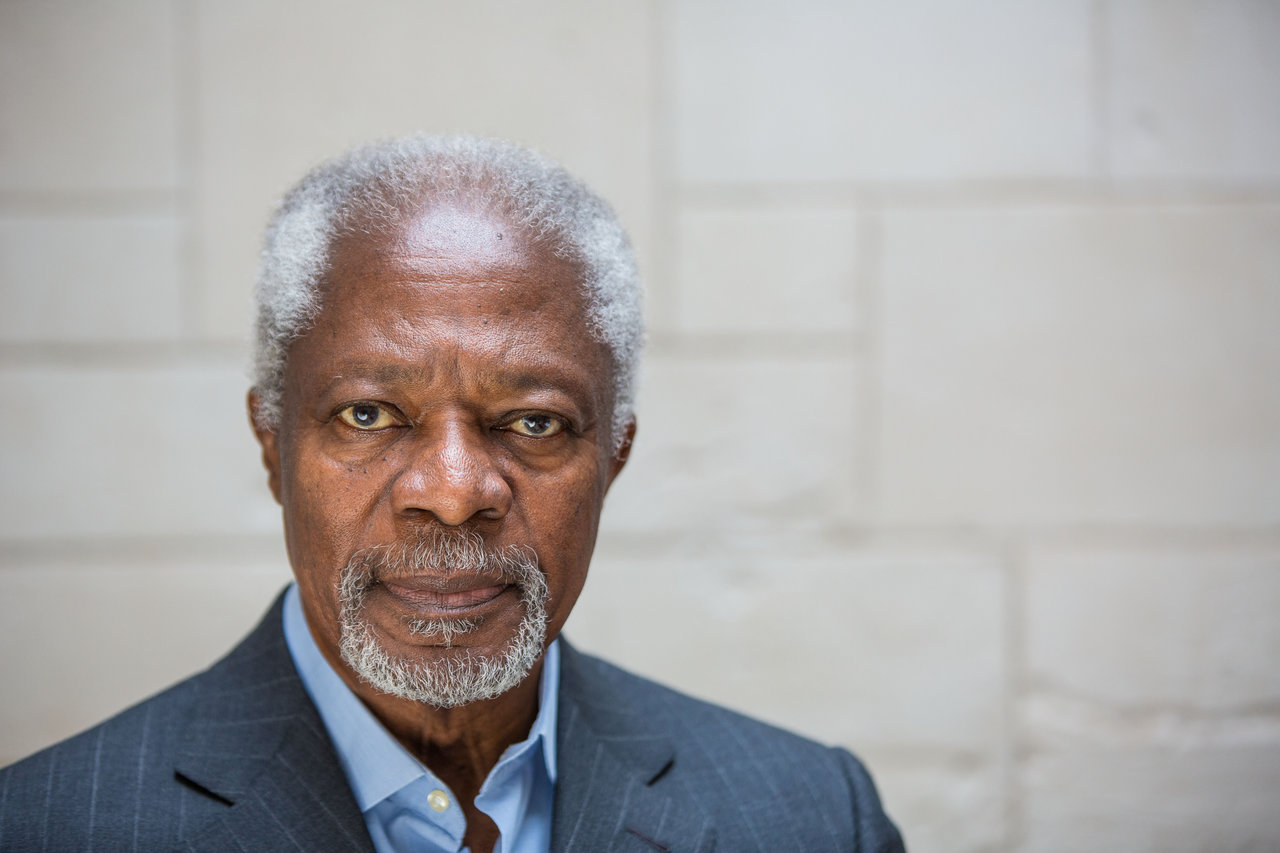Congratulatory remarks on Michael Moller’s receipt of the Prix de la Fondation pour Genève
I am delighted to join in celebrating Michael Moller’s outstanding contributions to the international family of Geneva, and by extension, his contribution to our global community. As many will know, Michael has long-standing ties with Geneva. In fact, it was March 1979 – 38 years ago this month – that he joined UNHCR in Geneva to begin what would become a long and distinguished career of international service. I shared some of this journey with Michael, and on many occasions – both at the United Nations and also when Michael was the Executive Director of my Foundation in Geneva – I have relied on him as both a trusted friend and a determined and compassionate colleague. Michael’s engagement with Geneva and his advancement of its core values of tolerance, diversity and dialogue have made him a worthy ambassador for all of us. So I heartily commend the Fondation pour Genève on its choice of recipient for this year’s prize.
Unfortunately, neither Michael nor we can assume that the values he embodies are beyond challenge and repudiation. The notions of human solidarity and cooperation that underpin the United Nations work around the world, and which are captured in the spirit of Geneva, are increasingly questioned. We hear more and more that multilateralism and pluralism pose a threat to national security, cultural identity, or economic prosperity.
This scepticism about their value reflects both an unwelcome retreat from democratic principles and a backlash against globalisation. Globalisation has raised hundreds of millions of people around the world out of abject poverty and made the world more interdependent and many nations richer than ever before. However, globalisation has contributed to rising inequality within nations and between nations because the benefits of globalisation have not been fairly shared. And as I have said before, if we cannot make globalization work for all, in the end it will work for none.
Increasing inequalities within nations, and the frustration created by seemingly uncontrollable global forces, have stoked fears about loss of sovereignty. Trust in politicians and democratic principles has diminished as a result, so democracy, the system best able to create the conditions in which free citizens can enjoy security, dignity and justice, is in retreat. Citizens feel that institutions and processes are not functioning properly, and not in the interest of the people from who power is derived. Yet the populists exploiting these concerns have little to offer in the way of solutions, so they play on the politics of fear and further erode our trust in each other. Diversity is portrayed as a threat that undermines our societies, rather than an asset that can benefit us all. Policies based on a narrow and exclusionary definition of national self-interest are touted as the answers to global challenges. But it is the lack of political will to think beyond nations’ own immediate self-interest that poses perhaps the greatest challenge of all.
Ironically, while international structures and institutions are being questioned and tested as never before, they are more necessary than ever. The scope and complexity of climate change, mass poverty, rising inequality and international armed conflicts – to name just a few of the critical global threats that we face – cannot be solved without determined multilateral action. So this is a good time to have Michael in our corner- we need him. When the whole world is changing, institutions cannot remain static, and the reform and revitalisation of structures of global governance requires the type of imaginative and creative leadership that he has displayed at UNOG.
The initiatives he has launched, such as the Perception Change Project or the International Gender Champions network have raised awareness of the work of the UN and Geneva’s international community. They have showcased the values of this wonderful city. More importantly, these and other innovations he has pioneered have helped to bring the United Nations closer to ‘we the people’ in whose name the charter of the United Nations was signed. At a time when many feel voiceless or ostracised from the world around them, this surely is an endeavour to which we should all dedicate ourselves.
So Michael, on behalf of your many friends, I thank you for leading the way. Please accept my warmest congratulations on your well-deserved award of the Prix de la Fondation pour Genève.

